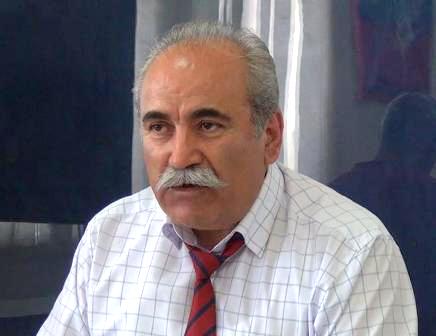
Treaty of Moscow – 16.03.1921
The Treaty of Moscow or “Treaty of Brotherhood” was a friendship treaty between Grand National Assembly of Turkey under the leadership of Mustafa Kemal and Bolshevist Russia under the leadership of Vladimir Lenin, signed on March 16,1921 and based on the Treaty of Brest-Litovsk, which was signed with Ottoman Empire in March 1918. Both of the signatories were not yet recognized Internationally as countries at the time of signing the friendship treaty. Hence, the treaty is void, null and has no value by international law.
Full text of the treaty translated from the Russian:
The Government of the Socialist Federative Republic of Russia and the Government of Grand National Assembly of Turkey, sharing the principles of brotherhood of nations and of the right of peoples of self-determination, and acknowledging their solidarity in the struggle against imperialism together with the fact that hardships caused to one of our two nations will invariably worsen conditions for the other, and entirely inspired by the desire to establish between them enduring cordial relations and continued friendship based on the mutual interests of both parties, have decided to enter into a pact of friendship and brotherhood, and for the purpose have authorized the following plenipotentiaries:
The Government of Russia: Georgii Vasil’evich Chicherin, the People’s Commissar
of Foreign Affairs and member of the Russian Central Executive Committee Djelal Edin Korkmasov, member of the Central Committee.
The Government of Turkey: Yusuf Kemal’-Bey, member of the Parliament representing Kastamoni and the People’s Commissar of Agriculture Dr.Riza Nur-Bey, member of the parliament representing Sinop, and the People’s Commissar of Education Ali Faud-Pasha, member of the Parliament representing Angora, and Ambassador Extraordinary and Plenipotentiary of the Parliament.
The above-named representatives, upon exchanging their powers of authority, and having found these appropriate and lawful in form, hereby agree to the following:
Artice I
Both Contracting Parties agree not to recognize in principle and peace treaties of other international acts into which either of the Contracting Parties was made to enter by force. The Government of RSFSR hereby agrees not to recognize any international acts concerning Turkey, which have not been accepted by the Government of Turkey, currently represented by the Grand National Assembly of Turkey.
The present Treaty understands Turkey as the sum of the territories included in the National Turkish Pact of January 28th, 1336 (1920), formulated and proclaimed by the Ottoman House of Delegates in Constantinople and communicated to the press and to all foreign nations.
The northeast border of Turkey will hereafter be defined by a line, which begins in the village of Sarp located on the Black Sea, passes through the Khedis-Mta mountain, the watershed line between the Shavshet and Kana Dag mountains; this line then follows along the northern administrative border of the the Ardahan and Kars Sanjaks (Administrative Regions) along the thalwegs of the Arpa-Chai and Araks rivers to the estuary of the lower Kara-Su.(the detailed delineation of the border and all related issues are specified in Annex 1 (A) and (B), and in the appended map, which has been undersigned by both Contracting Parties.)
Article II
Turkey hereby agrees to yield sovereignty of the port and city of Batum and the territory belonging to the Batum district, which is located north of the border described in Article 1 of the present Treaty, under the following conditions:
1) The population residing in the territories named under the present Article will be able to practice wide regional administrative autonomy, and each community will be allowed to establish land laws that conform to its conditions. 2) Turkey will be entitled to free transit of all goods, whether en route to or through Turkey, through the Batum port. These goods will pass under condition of exemption from customs duties, without delays, and without the imposition of any other taxes. Turkey is hereby given the rights to use the port of Batum without many special payments of this use.
Article III
Both Contracting Parties agree that the Nakhichevan Region, located within the
boundaries specified in Annex C of the present Treaty, will hereafter from an
autonomous territory under the auspices of Azerbaijan, under the condition that Azerbaijan will not relinquish the protectorate to any third party.
The borders of the triangle-shaped Nakhichevan Region are formed by the Araks river bed on one side, and on the West, by the line that passes through the mountains Danga (3829), Veli-Dag(4121), Bagarzik(6587), and Kemarlu-Dag(6930). The third border line of this territory, which begins at the Kemurlu-Dag mountain, passes through the Soray-Bulak mountain and the Ararat Station, and finishes at the junction of Kara-Su with Araks, will be properly corrected by a special commission made uo of delegates from Turkey, Azerbaijan and Armenia.
Article IV
In acknowledgement of the common interests of the national freedom of the Eastern peoples and the Russian peoples’ struggle to bring about a new social order, both Contracting Parties do hereby solemnly recognize these peoples’ right to freedom and independence and, consequently, their right to choose the form of governments that is in keeping with their desire.
Article V
In order to ensure the opening of the straits and passage for commercial ships of all nations, both Contracting Parties agree to hand over the final elaboration of the international status of the Black Sea and its straits to the future committee consisting of delegates from all Black Sea coastal nations, under the condition that the decisions made by said committee will impinge on neither Turkey’s full sovereignty, nor on Turkey’s security and the security of its capital city of Constantinople.
Both Contracting Parties recognize the fact that all the treaties concluded between them up to this point are in keeping with their mutual interests. For this reason, they hereby agree to annul these previous treaties and render them void.
The Government of the RSFSR hereby declares, in particular, that it considers Turkey free from any monetary or other obligations originating from any international pacts concluded between Turkey and the tsarist government.
Article VI
The Government of the RSFSR considers any capitulatory regime to be incompatible with the unhindered national development of any country, as well as with the full realization of its sovereign rights. Thus, the Government of the RSFSR considers null and void any acts or entitlements, bearing any relation to said regime.
Article VII
Both contracting Parties hereby promise never to allow the formation or presence of organizations of groups that lay claim to the government of the other Contracting Party or of a portion of its territories, as well as of any group that exist with the purpose of struggle against the other nation, within their territories. Russia and Turkey assume the same responsibilities with regard to the Soviet Republics of the Caucases under the condition of reciprocity.
It is considered determined that the Turkish territory mentioned in the present Article is understood to be the territory under the direct military and civil administration of the Grand National Assembly of Turkey.
Article VIII
In order to ensure uninterrupted commerce between both nations, the Contracting Paries hereby promise to take all appropriate and mutually cooperative measures aimed at preserving and developing the railroads, telegraph, and othr means of communication as quickly as possible, as well as providing for the unhindered movement of goods and persons between both sides without any delays.
However, it is hereby understood that all of the regulations in place in each country in regard to the entry and exit of goods and persons will continue to be fully applicable.
Article IX
The citizens of either Contracting Party residing or traveling within the territory of the other nation will be subject to all the regulations and obligations imposed by the laws of the country in which they are located, with the exception of military defense obligations, to which they will not be subject.
Issues having to do with family law, inheritance law and legal competency for citizens of both countries are also exempt from the presdent article. These issues will be settled by separate Agreements.
Article X
Both Contracting Parties hereby agree to apply the most favored nation clause to citizens of the other Contracting Party when they are located within their territories.
This Article does not apply to the rights of citizens of other Soviet Republics, as well as to the rights of citizens of the Muslim nations allied with Turkey.
Article XI
All residents of the territories that have been considered part of Russia until 1918, and which the Government of the RSFSR hereby acknowledges to be subject to Turkey on the basis of the terms of this Treaty, have the rights to leave Turkey unhindered and to take their belongings and personal property, or their equivalent monetary value. The same rights apply to residents of Batum, sovereignty over which hereafter passes from Turkey to Georgia, per the terms of the present Treaty.
Article XII
Russia hereby promises to return to Turkey all Turkish prisoners of war and civil captives remaining within its territory at Russia’s own expense. These prisoners are to be returned to the northeast border of Turkey within three months from the first day of the signing of this Treaty, if they are originating from the European part of Russia or from the Caucases, and within six months of the signing of the Treaty, if they are originating from the Asian part of Russia.
The details of this repatriation will be established by a separate Convention, which will be drawn up immediately after the signing of the present Treaty.
Article XIII
Both Contracting Parties agree to conclude a Consular Convention at the earliest possible time, together with the necessary Agreements to regulate all economic, financial, and other issues that are essential for the establishment of the friendly relations between the two nations that have been alluded to in the preamble to the present Treaty.
Article XIV
This Treaty is subject to ratification. The exchange of the ratification documents is to take place in Karsa as soon as possible.
The present Treaty, with the exception of Article X111, which is effective immediately, will go into effect from the moment of the exchange of the ratification documents.
In witness whereof the above-named plenipotentiaries have signed this Treaty and validated it with their seals. Drawn up in two exemplars in Moscow on March 16, 1921 (1337)
Annex 1(A)
The northeast border of Turkey is fixed as follows (in accordance with the map of the Russian General Staff, on a scale of 1:210,000, 5 versts to the inch);
The village of Sarp on the Black Sea, Mt. Kara-Shalvar (5014), crosses Chorokh to the north from the village of Maradidi, passes to the north of the village of Sabur, Mr.Khedis Mts (7052), Mt.Kva-Kibe, village of Kavtareti, the watershed line of Medzibna Mountain and Mr.Great-Kessum (6468), then follows the watershed line of Mt.Korda (7910), goes along the western part of the Shavshet ridge to the administrative border of the former Artvin district and to the Mt.Sari CHai (Kara-Issal) (8478), summit of the mountain Kviral, then follows the administrative border of the former Ardahan district by Mt.Kani-
Dag, then, turning to the north, goes to Mt. Tlil (Grmani) (8357), and following the former border of Ardahan, goes to the northeast of the village of Badela, to the river Poskhov-Chai, and follows to the south along this river to a point to the north of the village of Chap Chakh, then it leaves the river, follows the watershed line to Mt.Airlian-Bashi, goes over the Mts. Kella-Tana (9709), reaches Mt.Kasris-Seri (9681), and follows along the river Karzamet Chai until it reaches the river Kura, thence it goes to the elevation 7580, then to Mt. Gek-Dag (9152), goes over Mt.Uch-Tanalyar (9783), and Mt.Taila-Kala (9716)-summit 9065, where it leaves the former border of the Ardahan district and paces over the Mts.B.Akh Baba (9963) 8828 8827 7602, goes to the east of the village of Ibish, reaches elevation 7518, and then to Mt.Kizil Dash (7439) (7440), village of New Kizil-Dash (Kizel-Dash), passes to the west from Kara-Memeda, goes to the river Jambishu Chai (which is located to the east of the villages of Delaver, B.Kikli, And Tikhnis, and through the village of Vartanly and Bashi-Muragel, following the above named river, it goes to the river Arpa-Chai to the north of Kaladi, from there follows all the time the thalweg of the river Arpa-Chai and arrives at the Araks river, following its thalweg to the mouth of the river Lower Kara Su. (It is understood that the border follows the watershed lines of the above-mentioned mountains.)
Georgii Chicherin, Yusuf Kemal, Djelal Korkmasov, Dr. Riza Nur, Ali Fuad
Annex 1 (B)
Taking into aaccount the fact that the border line, as it is identified in Annex 1 (A), follows the thalwegs of the Arpa-Chai and Araks rivers, the Government of the Grand National Assembly hereby promises to move the line of blockhouses to the distance of 8 verts from the Alekdandropol-Yerevan railroad line in the district of the Arpa-Chai river, and to the distance of 4 verts from the above named railway in the Araks river district. The border lines for the above-named districts are shown below: the district of the river Arpa-Chai in sections (A) and (B) of Paragraph 1, and the district of the river Araks in Paragraph 11.
I. The Arpa-Chai river district
A) To the southeast from Vartanly, to the east from Uzun-Kilisa over Mt.Bozya (5096) 5082-5047, to the east from Karmir-Vank-Uch-Tapa (5578), to the east from Araz Oglu, to the east from Ani, reaches Arpa-Chai to the west from Yeni-Key.
B) Leaves Arpa Chai to the east, from elevation 5019 goes straight to elevation 5481, at the distance of 4.5 versts east of Kyzyl Kula, 2 versts the east of Bojaly, and then the river Digor Chai, follows along this river to the village of Duz-Kechut, and goes straight to the north from the ruins of Karabat and to Arpa-Chai.
II. The Araks River district
A strait line between Kharab Alijan and the village of Suleiman (Diza). In the districts bordered on one side by the line of the Aleksandropol-Yerevan railway and on the other by lines which are located 8 and 4 versts from the above named railway. The Government of the Grand National Assembly hereby promises not to build any fortifications (the above lines are located outside of these two districts) and not to keep a regular military presence there, although it retains the right to keep the number of troops which is essentially necessary for the maintenance of order, security, and for administrative needs.
Georgii Chicherin, Yusuf Kemal, Djelal Korkmasov, Dr. Riza Nur, Ali Fuad.
https://western-armenia.org/history/treaty-of-moscow/







